What do we know about Syria? We might recall the great, ancient empires or Paul’s journey to Damascus, but also the constant state of war, brutal massacres, or church destructions. In this country, often referred to as the birthplace of Christianity, the community of Christian believers hold on – deeply wounded by spiritual and physical losses, yet still standing. But does hope in God endures even when there is nothing more to lose? In our article, we catch a glimpse of the Syrian Christians’ life through the portrait of Pamela Shammas.
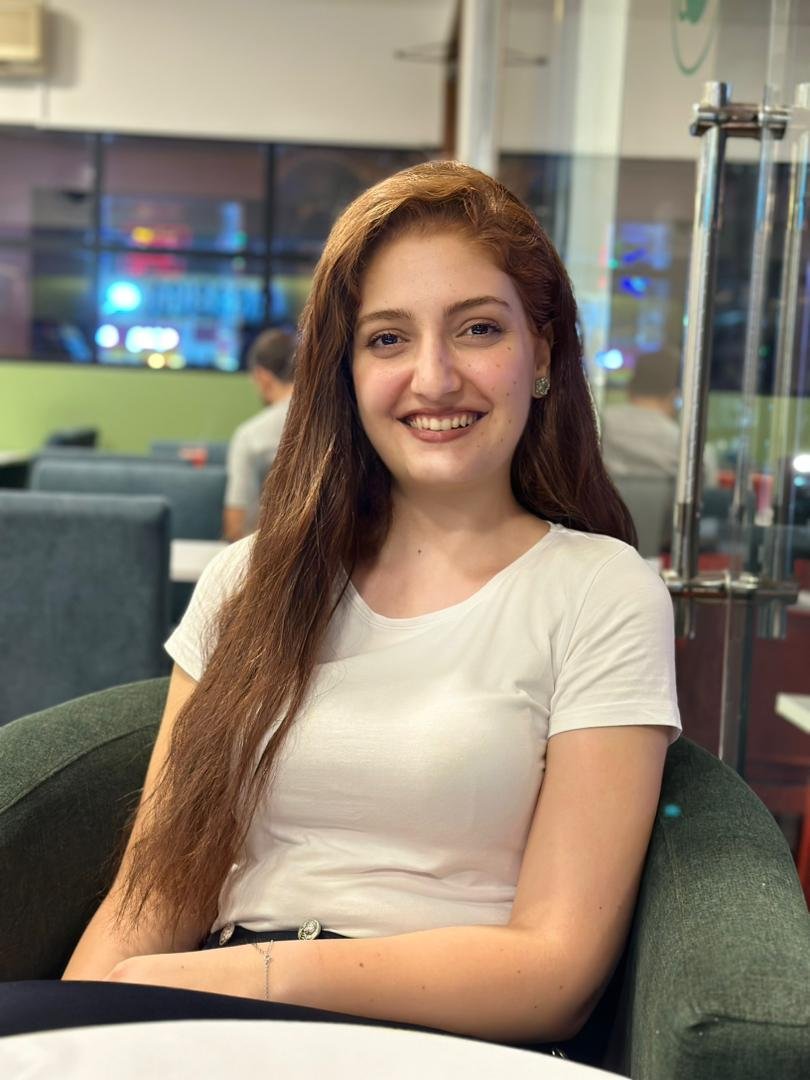
Photo: Pamela Shammas
WHERE ARE YOU GOING? – TO CHURCH!
Pamela Shammas lived in Aleppo until the age of twenty-eight. She grew up in a multi-generational Presbyterian family of faith, whose church belongs to the National Evangelical Synod of Syria and Lebanon (NESSL). Instead of passing on wealth, her ancestors passed on their faith, so the generations of the Shammas family grew up with service not merely as part of their lives, but as their natural way of living. One of her grandfathers, for example, was an elder in Qamishli, in the northeast part of the country, and his name is tied to the construction of the local church. Pamela, too, was raised within the embrace of the congregation. She passionately collected children’s Bibles and read them to tatters, using them to teach her younger brother the biblical stories. Her role models were the elders of the congregation, and she dreamed of one day becoming like them.
She attended a Christian elementary school, where the daily devotions before classes were led by the current president of their synod, who taught the children spiritual hymns and the theological foundations of their faith. As a young teenager, Pamela spent more and more time at the congregation, and by ninth grade she was already helping as a children’s worker in the preschool classes. She recalls with a smile how, when her parents asked where she was going, her answer was almost always the same: to church! “Why don’t you two just find yourselves a bed there and never come home,” was the playful reply – hinting at the fact that Pamela and her younger brother spent more time at the congregation than at home.
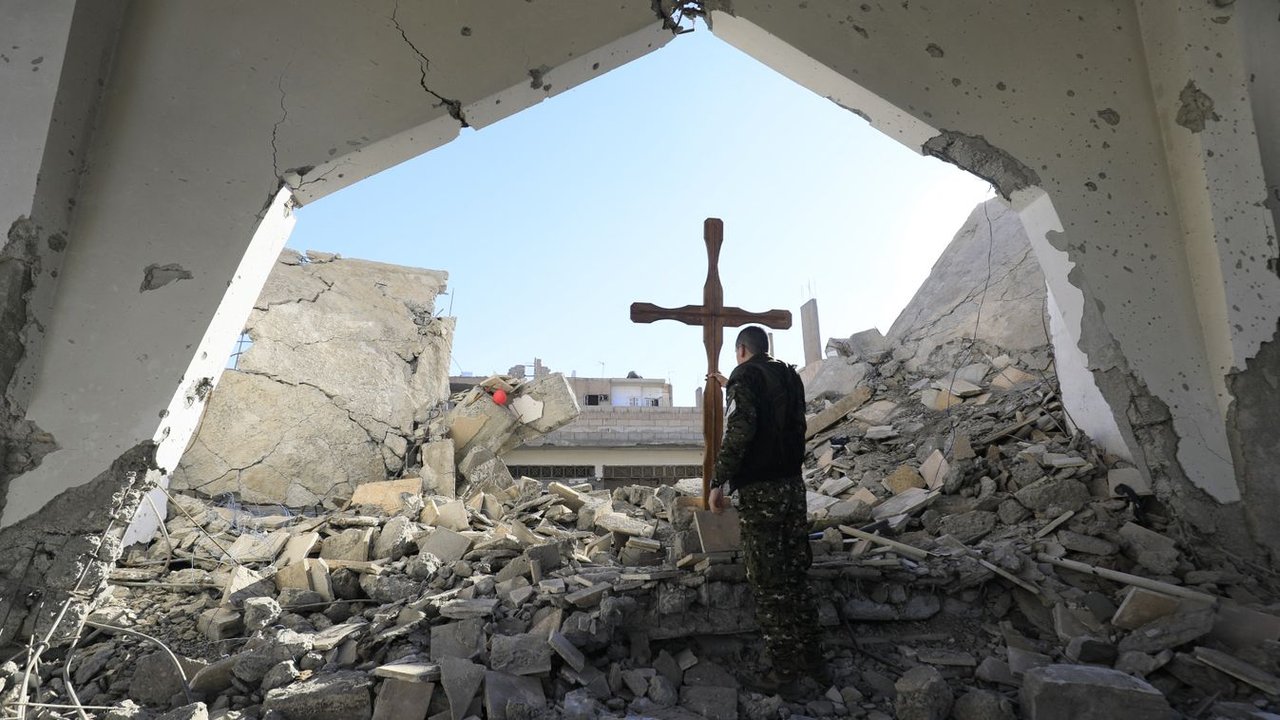
Photo: Delil Souleiman
Seeing the young girl’s zeal, the Lebanese pastor Najla Kassab – now president of the World Communion of Reformed Churches (WCRC) – suggested that she apply to study theology. Pamela, however, never desired the pulpit; she always felt more drawn to the behind-the-scenes work, to serving in the background. She views her whole life as an act of worship: striving to turn toward others as she has learned from Jesus. Her younger brother, in contrast, received a calling to pastoral ministry and is continuing his studies at the theological seminary in Beirut. In addition, he serves as a manager at the interdenominational civil organization Compassion Protestant Society, helping Christians in need, and as a staff member of their synod, he ministers as a traveling pastor in congregations without leadership.
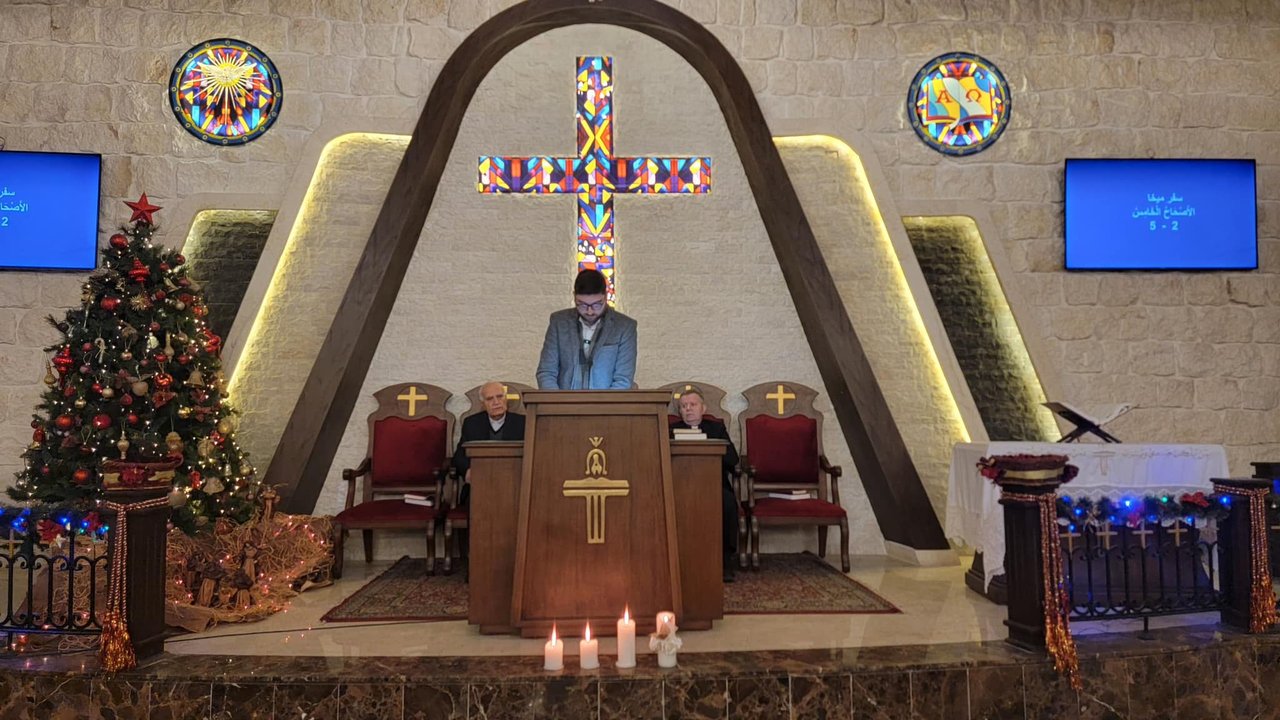
Photo: Pamela Shammas
HOW DID THE FIRST CHRISTIANS PERSEVERE?
In March 2011, demonstrators filled the streets of Syria in protest against the ruling elite. At first, the protesters demanded only reforms rather than a change of government, but the security forces responded with violence. The fragile political situation quickly escalated into unrest and then into a bloody civil war. The extremist Sunni rebels also targeted Christians, who until then had been free to practice their faith. The atrocities committed by Islamist fighters claimed many victims, especially in the Christian quarters of Aleppo and Damascus. Hundreds of thousands of people chose to leave their homeland, and thus Syria’s largest religious minority experienced a rapid decline in numbers.
Pamela was in her first year of high school when the events of the Arab Spring reached her city. Their beloved church lay in ruins, so they began attending the congregation of the Syrian Evangelical Church, which shared a similar theological spirit and had remained intact. Here the liturgy was conducted in Arabic, with the exception of the Lord’s Prayer in Syriac. The Shammas family also maintained a good relationship with the pastor of a nearby Baptist congregation, and Pamela was invited there as well to serve in the Sunday school.
It may surprise our readers how easy it is to move between Syria’s Protestant denominations, but Pamela points out that the civil war placed humanity far above theological differences. The Christian churches needed to join forces, as this enabled them to provide food, medicine, money, and other aid to their fellow citizens in distress much more effectively, sharing their databases and international contacts with one another. Several churches also launched vocational training programs, which allowed people who had lost their livelihoods to start their lives anew.
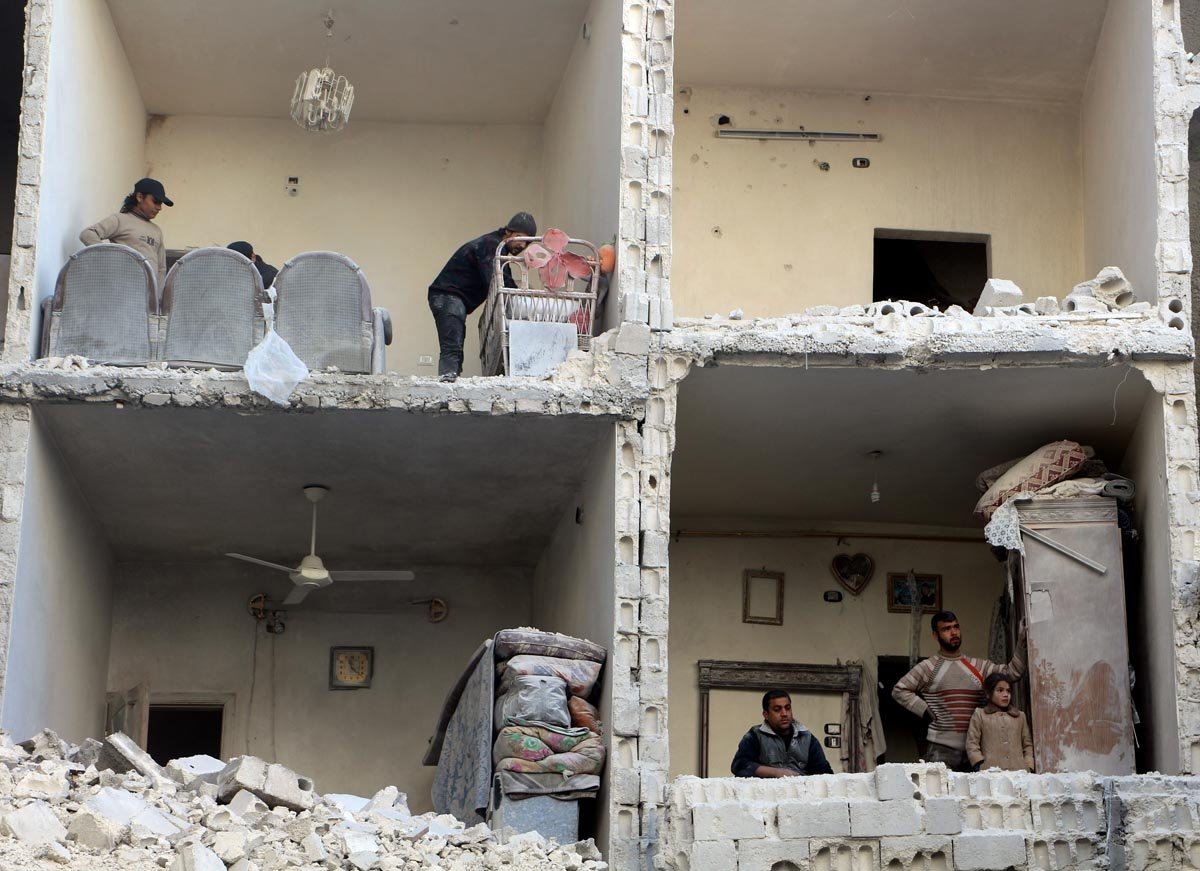
Photo: Karam al-Masri
“This war was not merely about two sides fighting each other, but about the destruction of our country, leaving behind nearly fifteen years of devastation and a deeply traumatized society. Although the scale of destruction far surpasses the attempts at rebuilding, the churches still strive toward the latter. They do not look at who they are helping – in such moments, only human lives matter. Yet Christians must face a society so worn down that people first need to rebuild themselves before they can even begin rebuilding their collapsed homes. They have nothing left to lose; it is no novelty for them to live without water, food, electricity, or fuel. This has become their new normal. That is why they also respond with indifference when we try to do something for them, because they are always expecting the worst. Even when something good happens to them, they see it as temporary and fragile. It is a characteristic defense mechanism – many can only survive this way,” Pamela reveals, giving us a glimpse into the harrowing post-war reality.
What can a believer say to those who feel they have nothing left to lose? The young woman admits that while she was living through it, she never really reflected on how they managed to endure those years – she was driven only by survival. In 2022 she moved to Budapest, and it was only from this distance, in both space and time, that she began to reflect on what was going through during that season of suffering.
“When things were at their worst, we always ran to God, and with Him we experienced miracles. When I left Syria, for the first time I began asking myself: how did the first Christians persevere when they were persecuted in the Roman Empire? I believe it was that rock-solid conviction that helped them endure – the conviction of having gained for themselves the immeasurable love of Jesus. I see a parallel in the situation of Syrian Christians today: like in a storm-tossed boat, they see the Lord through faith in the midst of the tempest. I believe God is still present in Syria today. He knows that people are suffering, but He does not abandon His people. If He sustained the first Christians, He will sustain us too. It is by no means easy, but in the Father’s presence we do not feel so utterly forsaken. That is what gives us the strength to go on living – and this hope is something others must come to know as well,” Pamela shares.
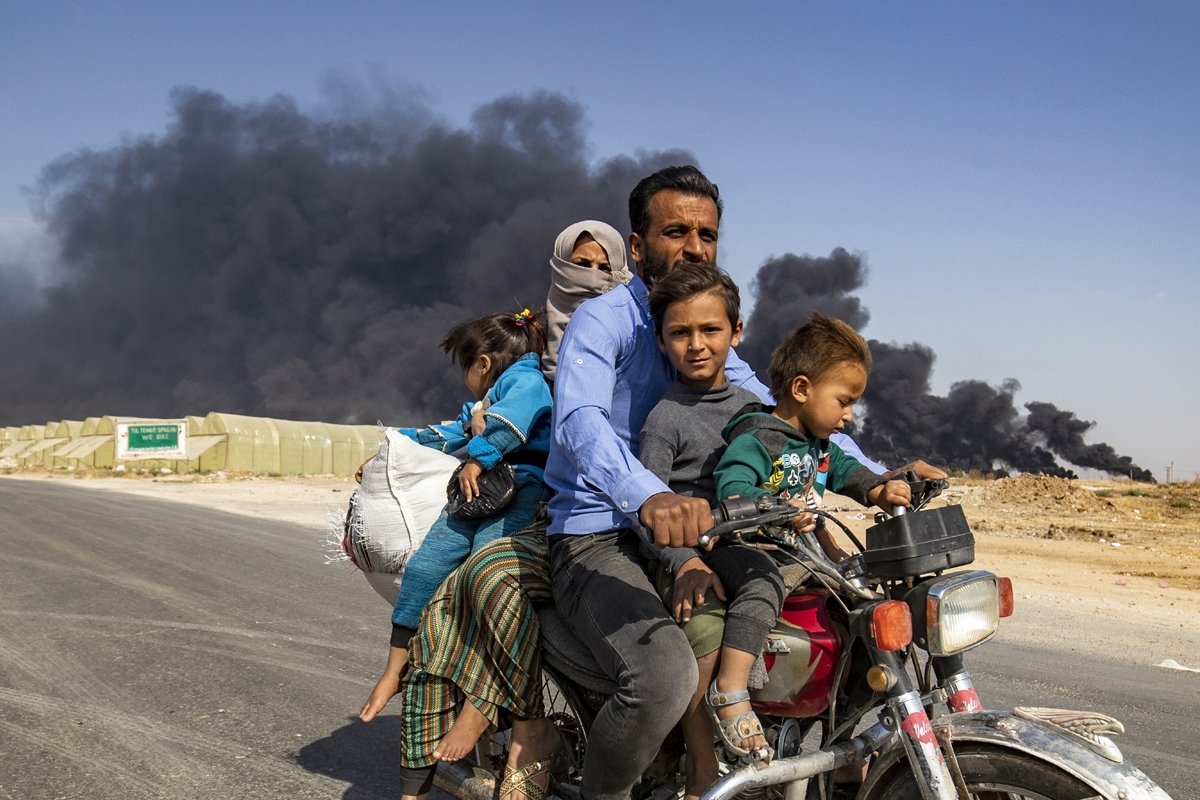
Photo: Delil Souleiman
Even in uncertain and desperate times, the work of the congregations never ceased. In 2015, the Presbyterians of Aleppo rebuilt their church, and Pamela also rejoined the ministries. Many young people had emigrated from the congregation, leaving behind a large number of elderly people living alone. The community paid special attention to visiting and caring for them. Alongside leading Sunday school for children and a Bible study group for university students, Pamela also started a new youth group for high school students, who until then had no dedicated community and often drifted away from church. To integrate the teenagers even more, they were gradually entrusted with different responsibilities.
The synod established theological training programs for young leaders so that they could share the gospel with deeper preparation and knowledge. In addition, youth conferences were organized each year for young believers from Lebanon and Syria, where lifelong friendships and sustaining relationships were formed. “Those four or five days each year gave us the strength and new energy for the year ahead. Many friendships were formed, and we have been in touch ever since. I could go anywhere in Syria or Lebanon, and I would always find Christian brothers and sisters whom I first met at those gatherings. Recently, these conferences were cancelled, which I deeply regret, because I know how much they strengthen our relationships both with our peers and with God,” Pamela explains.
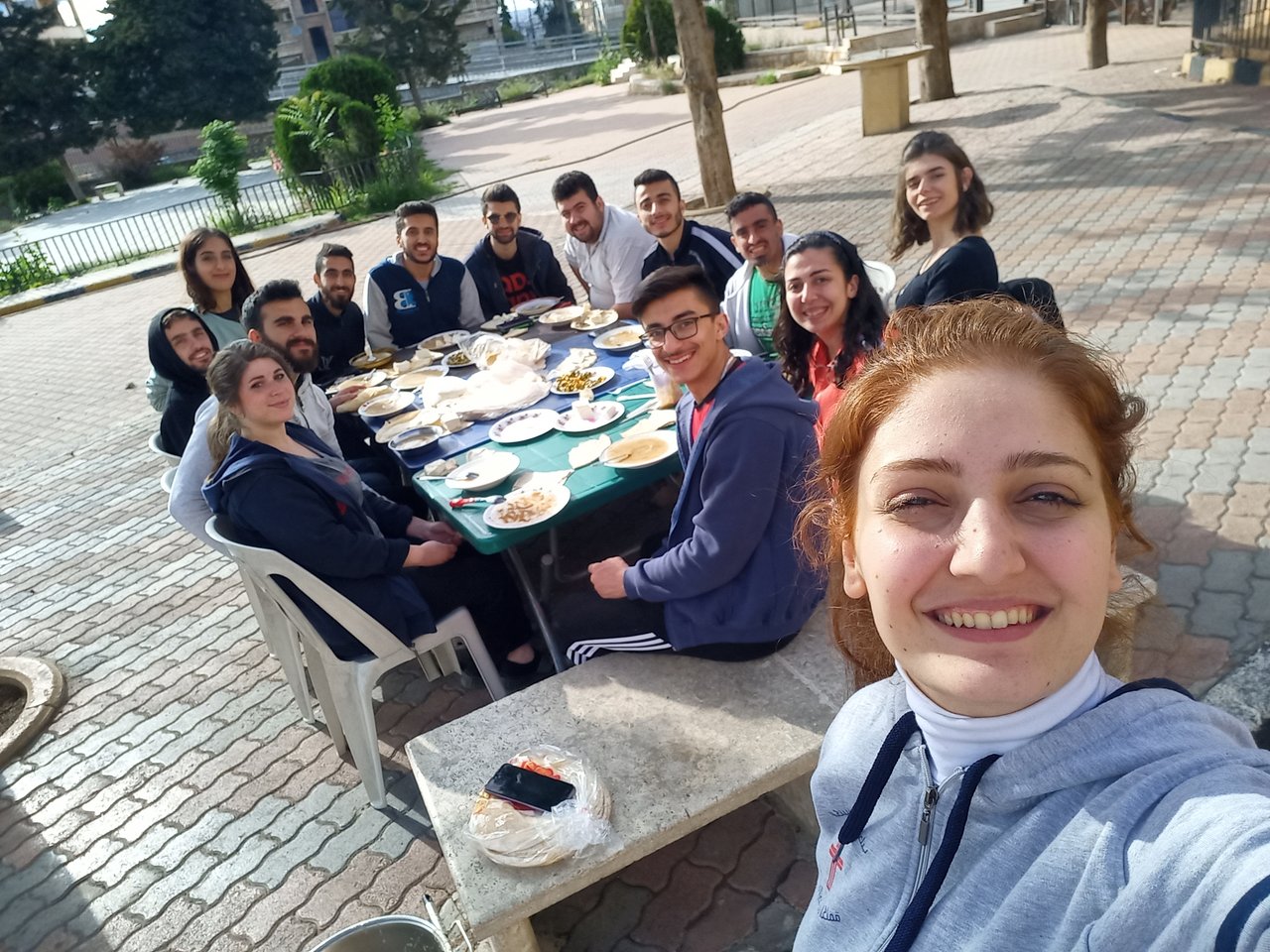
Photo: Pamela Shammas
FROM ALEPPO TO BUDAPEST
Pamela studied economics at university, with a focus on banking. Although she enjoyed the dynamic, practice-oriented field, the sanctions imposed on the country restricted the banks so much that they were not even allowed to issue loans – their work was reduced almost entirely to managing accounts. Pamela felt she could not flourish in such a profession, so she looked for another path. For three years she taught music and English in a kindergarten, making use of her experience gained in Sunday school. At work, she also encountered children with special needs. Observing the work of a therapist, she was amazed to see how an autistic child made far greater progress than expected when exposed to music. That was when she began to take interest in the role of music therapy in cognition.
It had never crossed Pamela’s mind to leave her country, not even amid all the suffering. Syria was her home; her family lived there. In 2020, her mother passed away from cancer, and so she especially did not want to leave her aging father and grandmother, who lived with them in Aleppo. A few years earlier, however, Pastor Najla Kassab had drawn her attention to a scholarship program created for young Christians, which included the opportunity to study at Károli Gáspár University of the Reformed Church in Hungary. Pamela hesitantly brought up the idea to her family: what if she moved abroad for three years? To her surprise, they encouraged her wholeheartedly, urging her to go ahead and affirming her choice of psychology as her field of study. It was then that Pamela realized she had been working with people for as long as she could remember – without ever noticing it. Helping others navigate the paths of the soul had already been an organic part of her daily life, and from 2022 on, she could pursue this calling in an academic setting.
“At home, my life revolved around a triangle: the university, the church, and my home. I thought that if I moved abroad, this rhythm would change. To my surprise, it did not,” says Pamela, who from the very beginning of her stay in Hungary became involved with the Scottish Mission, an ecumenical congregation bringing together international believers. This community had been recommended to her by her Presbyterian congregation back home, which had a partnership with the church led by Aaron Stevens. As a psychology student, Pamela found herself in a multinational youth group with members from all over the world. They did not only meet for Bible study and leisure activities, but also took active part in the church’s ministries to the poor, the elderly, and the homeless.
During her stay in Hungary, Pamela gathered countless experiences. Not only in Budapest, but also in places like Miskolc and Veszprém, she met members of the local Reformed Church. She remembers fondly the many believers she got to know, from whom she received so much – spiritual encouragement, friendship, kindness and practical help. She both served at and attended summer camps, joining the international team at this year’s Csillagpont youth festival, where she was delighted to see how many Hungarian young people are seeking the answers to their lives in Jesus. Of course, she also experienced culture shocks and stereotypes. One person was astonished to learn that Pamela could drive a car, while another assumed that back home she rode a camel. For some it even seemed paradoxical that she could be both Syrian and Christian – yet Jesus Himself lived in the Middle East.
A few years ago, Pamela visited the Syrian Krak des Chevaliers, one of the most significant surviving monuments of medieval military architecture. To her joy, she discovered a small plaque noting that Hungary had also contributed to the fortress’s renovation. She is proud to have studied in a country that considers the rebuilding of her homeland important.
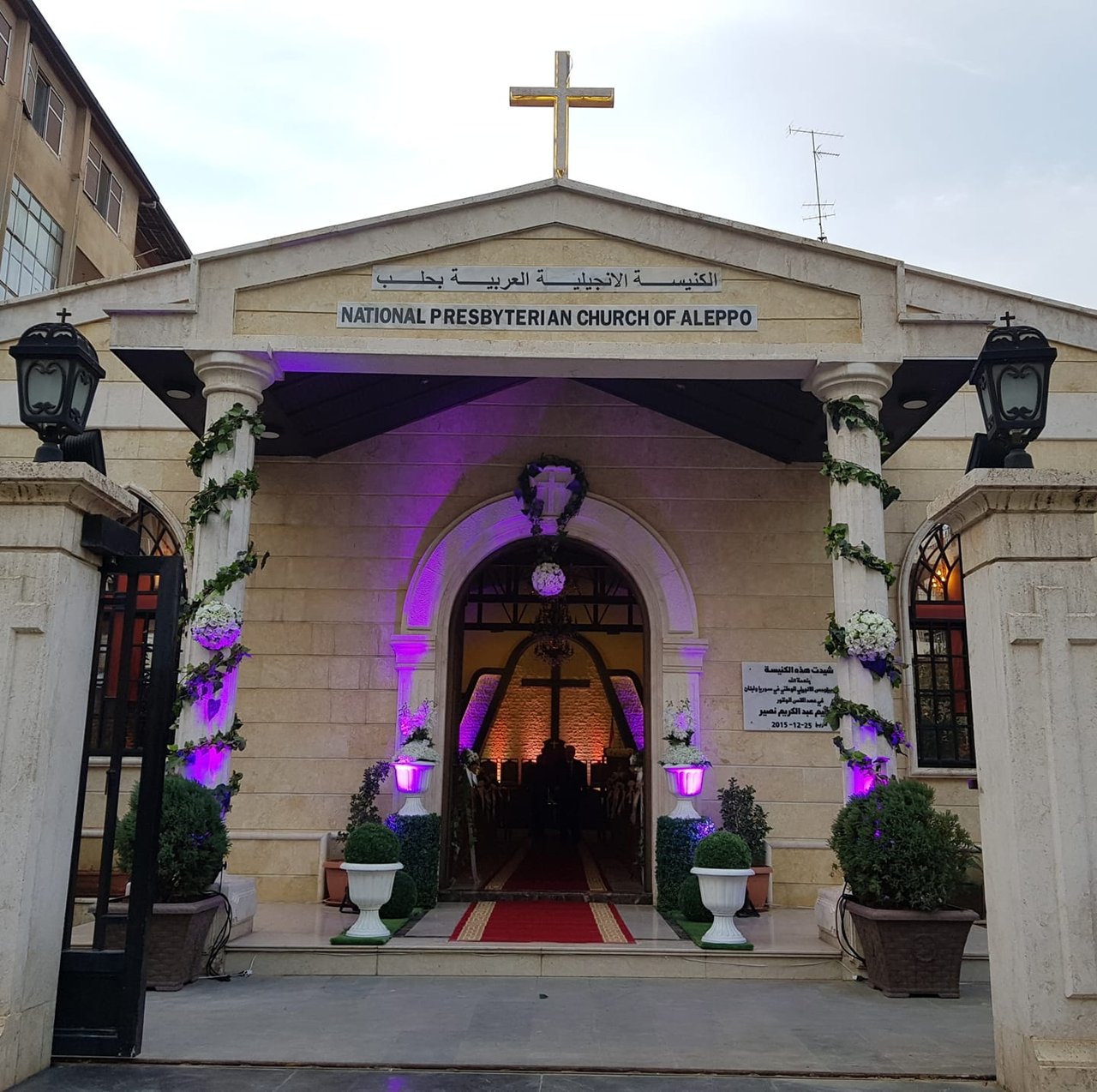
Photo: Pamela Shammas
NEW PATHS
This summer Pamela graduated with a BA degree from Károli. She applied to the Scholarship for the Christian Young program in Hungary, but in July she received word that her application had been rejected. Pamela was devastated and had no Plan B, so she entrusted herself completely to God. A missionary friend, Jeff, suggested that she apply as a volunteer with Resonate Global Mission’s placement in Berlin. What followed was a lengthy process, with a flood of emails, the bureaucratic labyrinth of visa applications, and looming deadlines. Anyone who has gone through such a process knows that a successful outcome feels like nothing short of a divine miracle. Pamela experienced this herself, and on August 27 – barely a month after her scholarship rejection – she found herself in Berlin. There she will first take a language course to learn the basics of German. Her new congregation, made up of both locals and foreigners, worships almost exclusively in German, which will also help her integration both linguistically and socially. Over the coming year, she will serve as a volunteer social worker, representing her Saviour among people while also putting her knowledge of psychology into practice.
The young woman likens her life so far to the construction of a building without ever seeing the blueprints: she started at the foundations, and in time the walls slowly rose higher. She never knows where or when a new window will appear, or in which direction the house will expand. New opportunities always shift her focus a little, yet she sees that the previous “stories” of her life never become obsolete – they are all interconnected with the fresh layers built upon them. “I regret nothing, because everything I went through has enriched me with experience. When someone asks me these days about my goals or my vision for the future, I cannot answer, since it constantly changes – and it probably always will. Even though what lies ahead is still veiled, my heart is full of gratitude for everything so far,” Pamela declares.
When I ask her what she hopes for the future of Syrian Christians, she responds with deep wisdom and even deeper faith. She points out that because of the country’s history and its location, blood has been shed over this land for some six thousand years. She knows full well that every ten or twenty years, new wars will erupt. As she puts it:
“I know it will not be easy, and that my people will suffer much more. Our hardships will never cease. But I hope and I pray, as the first Christians did, that we may be able to continue our mission – to be light and salt among those around us.”
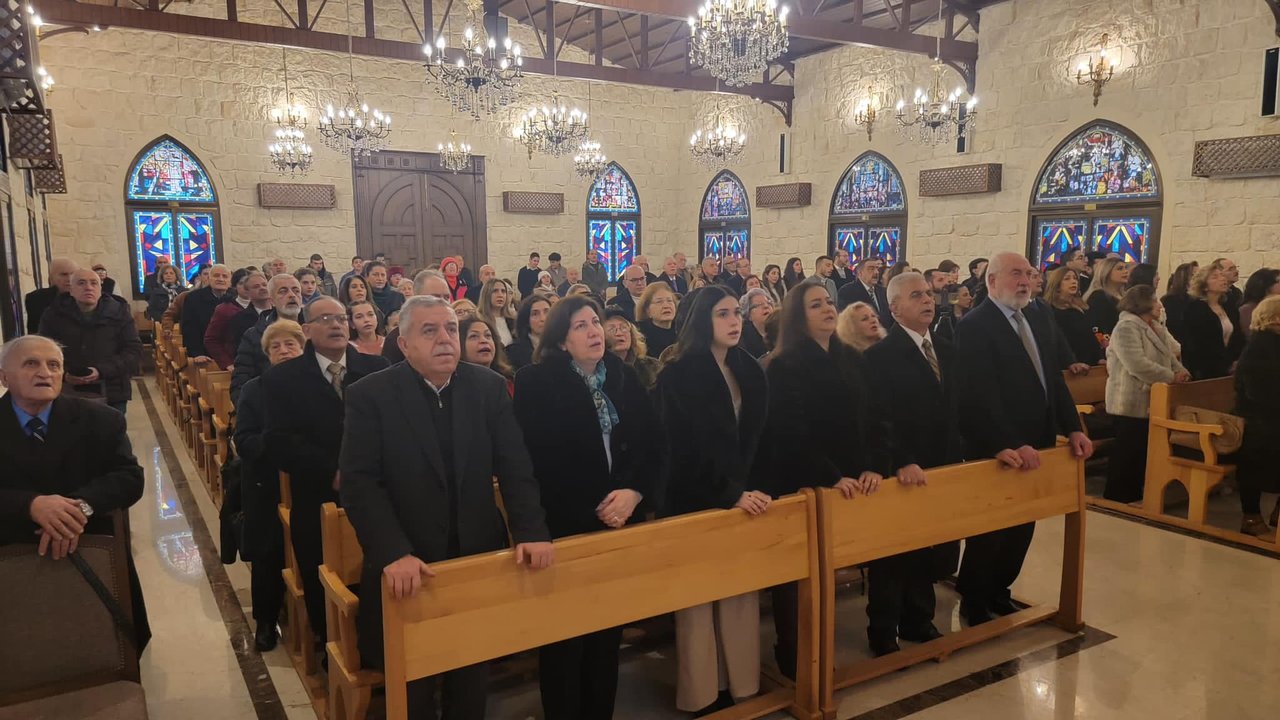
Photo: Pamela Shammas